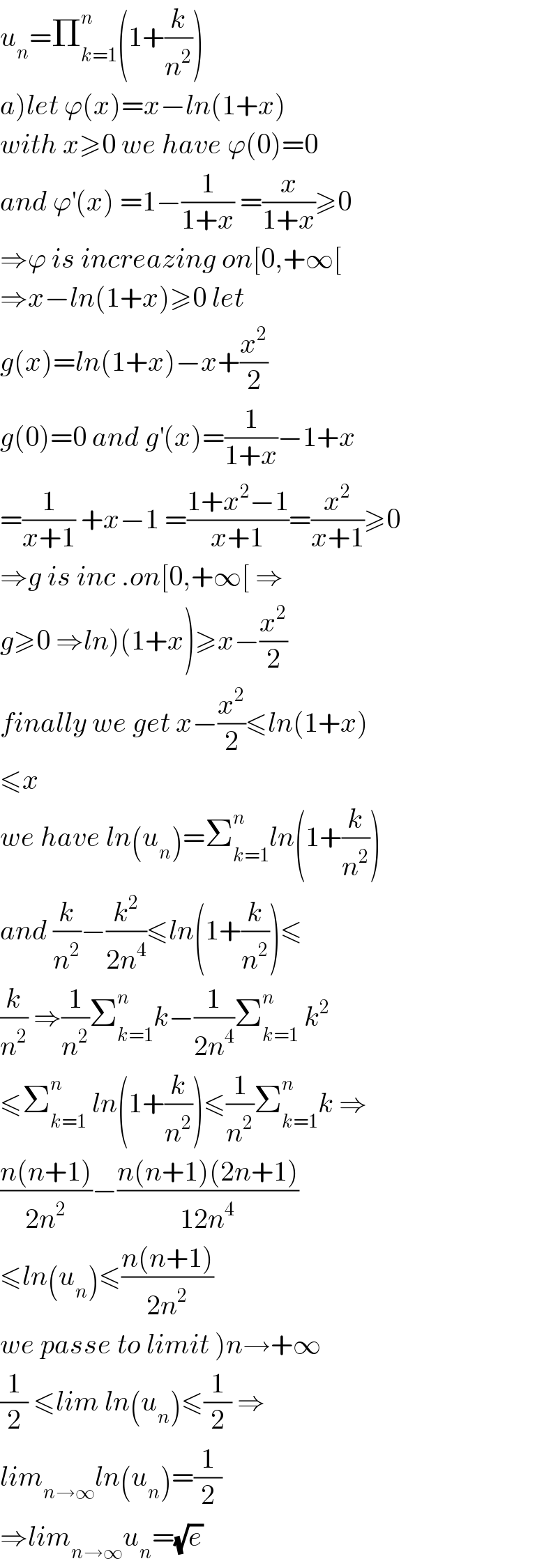
Question and Answers Forum
Question Number 114533 by 675480065 last updated on 19/Sep/20

Answered by abdomsup last updated on 19/Sep/20

| ||
Question and Answers Forum | ||
Question Number 114533 by 675480065 last updated on 19/Sep/20 | ||
 | ||
Answered by abdomsup last updated on 19/Sep/20 | ||
 | ||
| ||